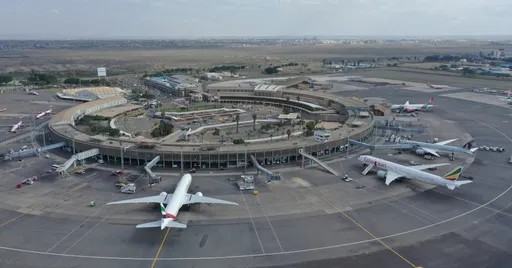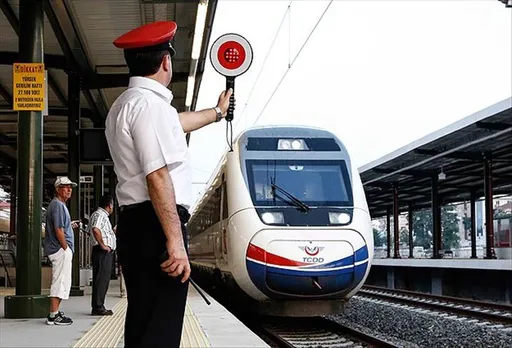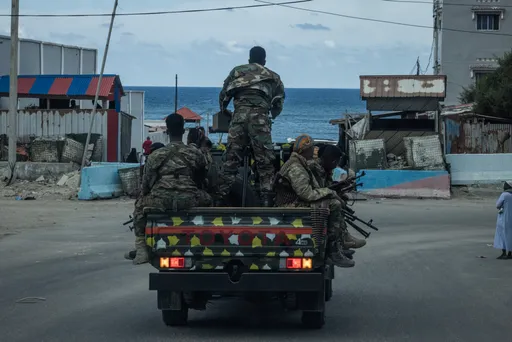Rashidat Hamza is in distraught. All but one of her six children are among the nearly 300 students abducted from their school in Nigeria’s conflict-battered northwest.
Her children — ages 7 to 18 — went to school in the town of Kuriga on Thursday only to be herded away by a band of gunmen. She is still in shock and despair.
“We have never seen this kind of thing (in our town) where our children were abducted from their school,” she told Associated Press news agency on Saturday. “We don't know what to do, but we believe in God.”
The kidnapping in Kuriga was only one of three mass kidnappings in northern Nigeria since late last week, a reminder of the security crisis plaguing Africa’s most populous country.
Various armed groups
A group of gunmen abducted 15 children from a school in another northwestern state, Sokoto, before dawn on Saturday, and a few days earlier 200 people were kidnapped in northeastern Borno State.
It was in Borno's Chibok town a decade ago that school kidnappings in Nigeria burst into the headlines with the 2014 abduction of more than 200 schoolgirls by Boko Haram insurgents shocking the world.
No group has claimed responsibility for any of the recent abductions. But the militants waging an insurgency in the northeast are suspected of carrying out the latest mass kidnapping in Borno state.
The other incidents in the northwestern states of Kaduna and Sokoto are believed to be the handiwork of armed gangs kidnapping people for ransom who are active in the region.
Blocking access
Among the students abducted Thursday in Kaduna state were at least 100 children aged 12 or younger. They were just settling into their classrooms at the government primary and secondary school when gunmen “came in dozens, riding on bikes and shooting sporadically,” said Nura Ahmad, a teacher.
The school sits by the road just at the entrance of Kuriga town, which is tucked in the middle of forests and savannah.
“They surrounded the school and blocked all passages … and roads” to prevent help from coming before marching the children away in an operation that lasted less than five minutes, Ahmad said.
Fourteen-year-old Abdullahi Usman braved gunshots in making his escape from the captors.
'My brain scattering'
“Those who refused to move fast were either forced on the motorcycles or threatened by gunshots fired into the air,” Abdullahi said.
“The bandits were shouting: Go! Go! Go!” he said.
By the next day, Nigerian police and soldiers headed into the forests in search of the children but combing the wooded expanses of northwestern Nigeria could take weeks, observers have said.
“Since this happened, my brain has been scattering,” said Shehu Lawal, the father of a 13-year-old boy who is among those abducted.
“My child didn’t even eat breakfast before leaving. Even his mother fainted. … We were worried, thinking she would die,” Lawal said.
Decade-long kidnappings
Some villagers like Lawan Yaro, whose five grandchildren are among the abducted, say their hopes are already fading into fear.
People are used to the region's insecurity, "but it has never been in this manner,” he said.
“We are crying , looking for help from the government and God, but it is the gunmen that will decide to bring the children back,” Yaro said.
“God will help us,” he said.
Since the 2014 abduction in Chibok of 276 schoolgirls, which sparked the global #BringBackOurGirls campaign, about 2000 Nigerian students were seized from their schools in similar circumstances. Some of the victims are still in captivity including nearly 100 of the Chibok girls.
But schools are not the only targets.
Ransom ban
Thousands of people have been abducted across Nigeria in the last year alone, according to the Armed Conflict Location and Event Data Project.
The crisis has even hit homes in the capital of Abuja, where President Bola Tinubu took office after being elected last year following a campaign in which he promised to resolve kidnappings.
A major factor that conflict analysts say has fueled the abductions is how easy it is to smuggle in arms over Nigeria’s poorly policed borders.
In 2022, Nigerian lawmakers passed a bill to bar ransom payments, but Nigeria's kidnappers are known for brutality, prodding many families to scramble to pay a ransom.
'No soldier, no police'
More than a dozen checkpoints and military trucks now dot the 55-mile (89 kilometers) road that runs from Kuriga town to the city of Kaduna. But the soldiers are likely to soon be deployed elsewhere, whenever a new security incident requires that troops provide a presence.
People in Kuriga can only hope that the schoolchildren return unhurt and that the security they feel now with the military trucks around endures.
“We hope for help from the government so that they will arrest the attackers,” said Rashidat, the mother fearful for her five kidnapped children.
“The gunmen don’t allow us to farm, they don’t allow us to have peace outside … we don’t have security — no soldier, no police.”
➤Click here to follow our WhatsApp channel for more stories.




















.JPG?width=512&format=webp&quality=80)


